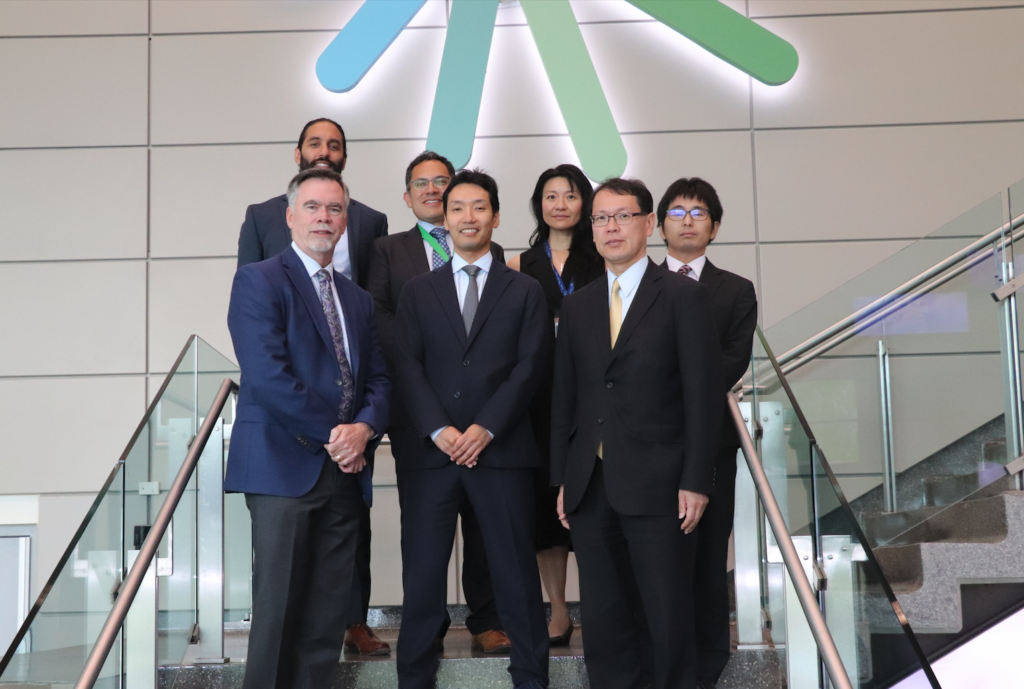 Canadian Nuclear Laboratories (CNL) and Japan’s Kyoto Fusioneering (KF) have entered a Strategic Alliance Agreement (SAA) to accelerate the development and commercialization of fusion fuel cycle technology. The SAA builds on a Memorandum of Understanding signed in March.
Canadian Nuclear Laboratories (CNL) and Japan’s Kyoto Fusioneering (KF) have entered a Strategic Alliance Agreement (SAA) to accelerate the development and commercialization of fusion fuel cycle technology. The SAA builds on a Memorandum of Understanding signed in March.
Kyoto Fusioneering was spun out of Kyoto University as Japan’s first fusion start-up in 2019 co-founded by Taka Nagao, Satoshi Konishi, Richard Pearson and Shutaro Takeda. Its mission is to tackle reactor engineering and technology challenges, whilst cooperating with fusion developers around the world, to rapidly accelerate the growth of the fusion industry. The company’s business model is to conduct R&D and design of innovative fusion reactor technologies, and to provide these alongside engineering solutions to both private fusion enterprises and publicly funded fusion programmes at global research institutions.
Because most of the world’s fusion power plant designs use tritium, there is a growing demand for tritium handling and tritium-compatible technology. The significance of managing the tritium fuel cycle for fusion commercialisation has been emphasised by recent reports from the National Academies of Sciences, Engineering, & Medicine (NASEM) and the Fusion Energy Sciences Advisory Committee (FESAC). With this in mind, CNL and KF will:
- Innovate tritium fuel cycle technologies and systems, advancing the readiness level of the complete tritium fuel cycle with a focus on safety, public protection, and system economics.
- Support fusion developers in design & development of pilot plants. This will include proving comprehensive design, consulting, engineering, testing and technology to meet the needs of public and private fusion energy development programmes globally.
- Support tritium handling and management, offering insights and solutions for efficient tritium behaviour control and extraction in fusion pilot plant devices.
CNL Vice-President, Science & Technology Dr Jeff Griffin said: “Both CNL and KF are conducting cutting edge work to advance fusion technology, with each organization having built technical strengths in select areas. By working cooperatively, we can more effectively apply this knowledge and expertise, which will ultimately better serve the needs of the market.”
Dr Satoshi Konishi, Co-Founder & Chief Fusioneer at KF, said fusion energy holds transformative potential for global energy. “Our partnership with CNL merges KF's fusion technology with CNL's tritium management expertise, positioning us to tackle some of commercial fusion power's most critical challenges."
UNITY-2, a fusion test loop proposed for construction at CNL is seen as complementary to KF’s UNITY-1 (formerly UNITY- Unique Integrated Testing Facility), announced in July 2022 with the stated aim of demonstrating electricity generation using fusion relevant technologies in 2024. While UNITY-1 focuses on the thermal cycle system to harness heat from the fusion core, UNITY-2 focuses on demonstrating the complete fuel cycle.
UNITY-2, designed to emulate fusion power plant conditions, will be a global first, integrating a full deuterium-tritium fuel cycle with the highest safety and tritium handling standards. It will demonstrate fuel exhaust and pumping, direct internal recycling, fuel clean-up and isotope separation, tritium management and storage, tritium extraction from liquid metal and molten salt coolants, air and water detritiation, and reactor fuelling. This facility will bolster materials, systems, and equipment development and verification.
Image courtesy of Canadian Nuclear Laboratories






